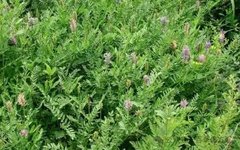Astragalus, traceable to the silk manuscripts “Fifty-Two Disease Formulas” unearthed from the Han Dynasty tomb at Mawangdui, is listed as a superior herb in the “Shennong’s Herbal Classic.” Li Shizhen elaborated in the “Compendium of Materia Medica”: “Astragalus is yellow in color, symbolizing the long-lasting benefits of supplementation, hence the name ‘Qichang’…”
Astragalus is derived from the roots of the leguminous plants Mongolian Astragalus (Huangqi) or Membranous Milkvetch (Huangqi), thriving in sunny grasslands and hills, primarily distributed in Inner Mongolia, Shanxi, Heilongjiang, and other regions. The spring and autumn seasons are the harvesting times for Astragalus, which must be cleaned of soil, fibrous roots, and root heads before drying. High-quality Astragalus is characterized by thick, long roots, a yellowish-white cross-section, and a rich powdery texture.
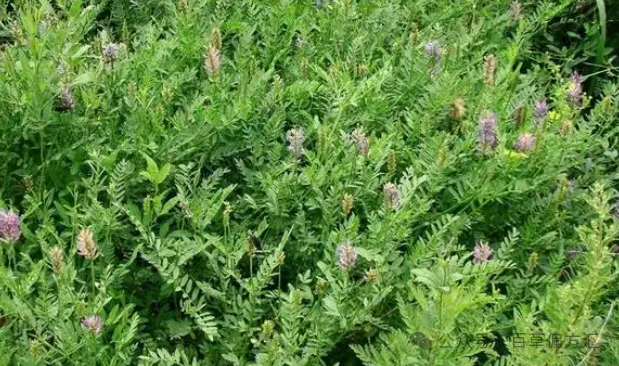
Ancient texts such as “Bencao Fengyuan” record: “Astragalus can replenish the deficiencies of the five organs and stop sweating.” So, what miraculous effects does Astragalus possess?
Astragalus is sweet and slightly warm, primarily associated with the Spleen (Pi) and Lung (Fei) meridians, and has been a valuable medicine in TCM for treating various diseases since ancient times. The effects of Astragalus are extensive and profound, not only replenishing Qi and raising Yang, but also benefiting the Wei (defensive Qi) and solidifying the exterior, as well as promoting diuresis and reducing swelling, making it a gem in the treasure trove of Chinese medicine.
Firstly, Astragalus is sweet and warm, a key herb for tonifying the middle and benefiting Qi, particularly effective in the Spleen meridian. Individuals with Spleen Qi deficiency often exhibit symptoms such as fatigue, poor appetite, and loose stools. When Astragalus is decocted alone or combined with other Qi-tonifying herbs like Dang Shen (Codonopsis) and Bai Zhu (Atractylodes), it can significantly enhance Spleen and Stomach function, improving these symptoms.
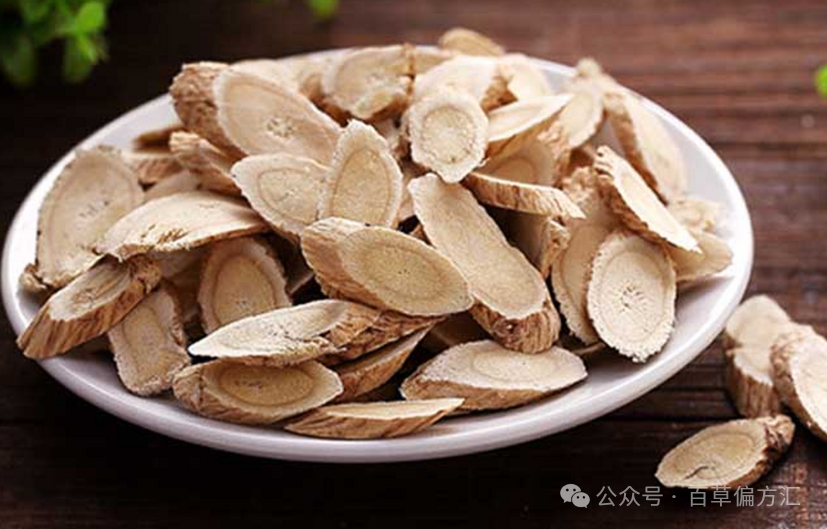
Astragalus’s raising Yang and lifting sinking Qi function makes it a powerful assistant in treating diseases caused by Spleen Qi deficiency and sinking Qi. Sinking Qi can lead to severe consequences such as chronic diarrhea, prolapse, and organ descent. In the “Spleen and Stomach Treatise,” the formula Bu Zhong Yi Qi Tang combines Astragalus with Ren Shen (Ginseng), Sheng Ma (Cimicifuga), and Chai Hu (Bupleurum) to collectively elevate the middle Qi, allowing the descended organs to return to their normal position and restore physiological function.
Astragalus’s diuretic and swelling-reducing effects are primarily evident in treating edema and reduced urination due to Spleen Qi deficiency and water retention. Astragalus not only tonifies Spleen Qi, promoting its transportive function, but also facilitates diuresis and reduces swelling, achieving a comprehensive treatment effect. In the formula Fang Ji Huang Qi Tang from the “Golden Chamber,” Astragalus is combined with Bai Zhu and Fu Ling (Poria) to address the root cause of edema, allowing it to subside and restoring normal metabolism.
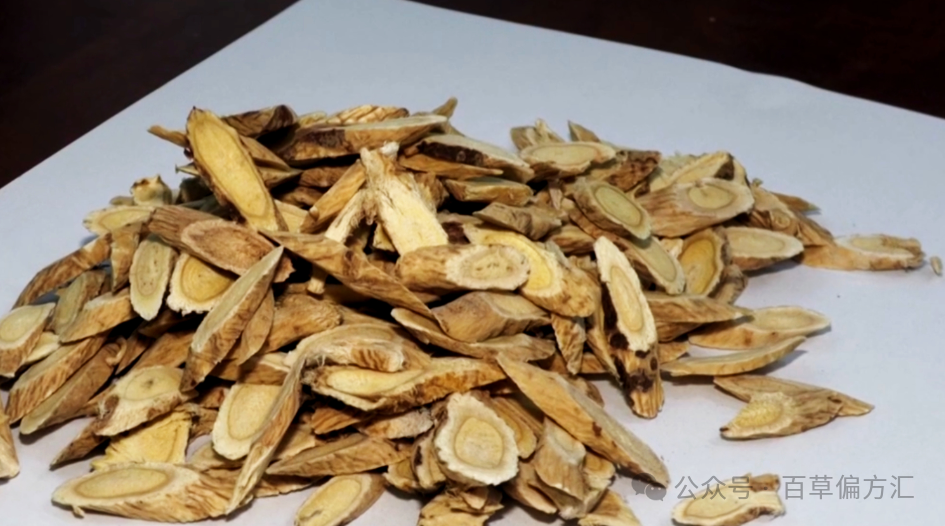
Astragalus enters the Lung meridian and can tonify Lung Qi, making it an excellent remedy for patients with weak Lung Qi, chronic cough, and shortness of breath. Astragalus is often used in conjunction with Zi Wan (Aster), Kuan Dong Hua (Tussilago), and Xing Ren (Apricot Kernel) to enhance the Lung’s dispersing and descending functions, alleviating cough and asthma symptoms and improving respiratory function.
The tonifying Qi and generating blood effects of Astragalus also show significant efficacy in treating blood deficiency and conditions of both Qi and blood deficiency. In the formula Dang Gui Bu Xue Tang from the “Lan Shi Mi Cang,” Astragalus is combined with Dang Gui (Angelica) and other blood-tonifying herbs to address the root causes of Qi and blood deficiency, promoting the generation and circulation of Qi and blood, and improving symptoms such as pale complexion and fatigue.
Astragalus’s detoxifying and promoting tissue regeneration effects are evident in treating symptoms such as ulcers, purulent discharge, and slow healing of wounds. When combined with Ren Shen, Dang Gui, and Bai Zhi (Angelica Dahurica), which tonify Qi and blood, detoxify, and promote pus discharge, Astragalus can facilitate wound healing and restore normal skin function.
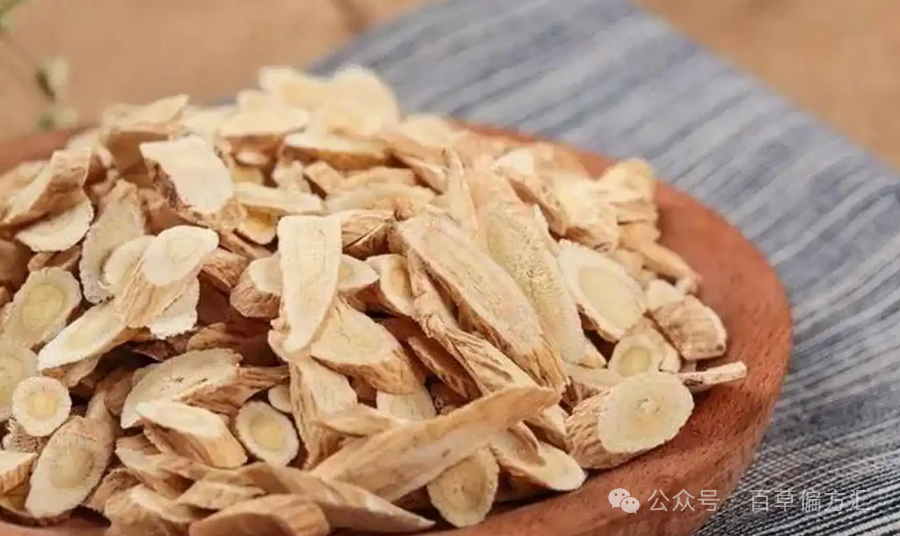
The tonifying Qi and generating fluids effects of Astragalus are also significant in the treatment of diabetes (known as “Xiao Ke” in TCM). Astragalus can tonify the Spleen and Lung to assist in Qi transformation, promoting the distribution of body fluids and improving symptoms of diabetes. In the formula Yu Ye Tang from the “Medical Records of Traditional and Western Medicine,” Astragalus is combined with Tian Hua Fen (Trichosanthes) and Ge Gen (Pueraria) to address the root causes of diabetes, regulate blood sugar levels, and improve symptoms such as thirst and excessive drinking.
Astragalus’s tonifying Qi and promoting blood circulation effects play an important role in treating conditions such as Bi syndrome and sequelae of stroke, which are characterized by Qi deficiency and blood stagnation. When combined with Chuan Wu (Aconitum), Du Huo (Angelica Pubescens), Chuan Xiong (Ligusticum), and Niu Xi (Achyranthes), Astragalus can alleviate joint pain and swelling caused by wind-cold-dampness. In treating sequelae of stroke, Astragalus is used with Dang Gui, Chuan Xiong, and Di Long (Earthworm) to promote blood circulation and improve symptoms such as limb numbness and paralysis.
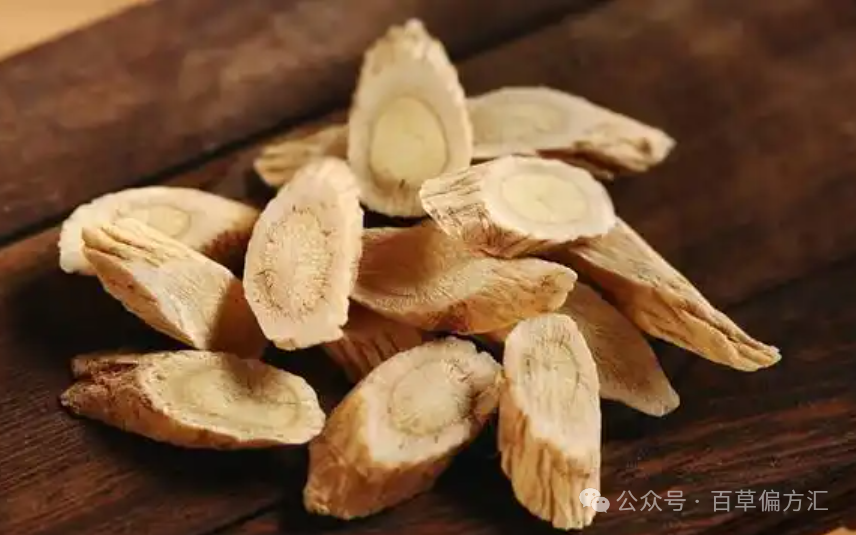
Here, I would like to share an experiential prescription for treating urinary retention: use 10 grams of Astragalus, add two bowls of water, and decoct to one bowl, taking it warm. For children, reduce the dosage by half.
Warm reminder: This account aims to promote TCM culture, and the herbal formulas mentioned are for learning and exchange purposes only.
Click to follow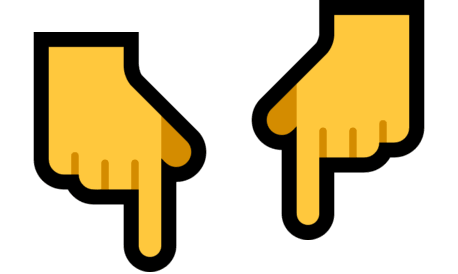 Learn more
Learn more
More exciting recommendations:
Want to nourish liver blood? Combine Dang Gui with it to strengthen your bones and improve your hearing and vision, so you won’t fear liver disease!
For treating gout and lowering uric acid, this formula is sufficient!
Chinese herbs: Licorice can “detoxify, tonify Qi, and harmonize all herbs,” with five wonderful uses that everyone loves!
Be the first to save and share with friends, the more people see it, the more health benefits!

